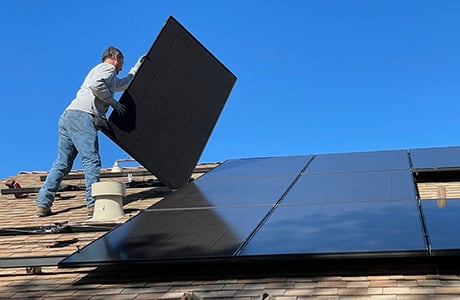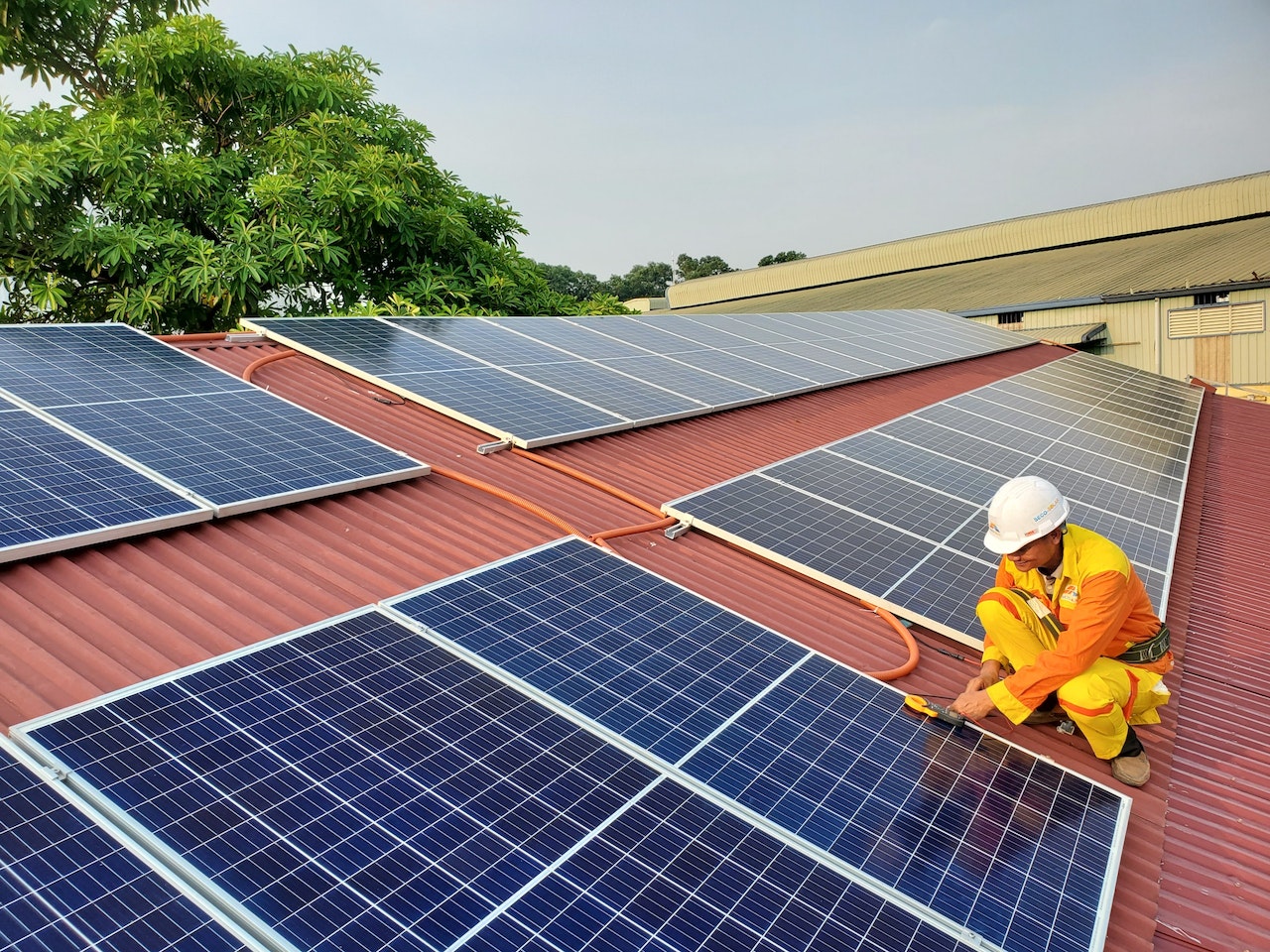Just How to Choose the Right Solar Energy Installment for Your Energy Needs
Choosing a proper solar power installment calls for a methodical approach that begins with a clear understanding of your energy intake patterns and expected future needs. Variables such as the type of solar modern technology, installation expenses, and offered motivations play essential functions in making a notified choice - solar photovoltaic. The choice of a certified installer can not be neglected, as their expertise can significantly affect the performance and long life of your system. As you evaluate these factors to consider, you might locate that the ideal course is not always one of the most noticeable one.
Assess Your Power Requirements
Analyzing your power requires is a crucial very first step in the solar power installation procedure. Recognizing your current and future energy intake will certainly assist the style of a reliable solar system tailored to your requirements.
Consider seasonal variations in energy intake, as particular months might demand more power as a result of home heating or air conditioning needs. Furthermore, evaluate any type of planned changes in way of living or residential property, such as the purchase of electric lorries or home expansions, which may boost your power needs in the future.
Once you have a detailed understanding of your energy consumption, you can identify the appropriate solar capacity required to fulfill those needs. This evaluation not only helps in sizing the solar installation but also informs choices regarding energy storage services and potential grid connection requirements. solar photovoltaic. Inevitably, properly determining your energy needs makes certain that your solar energy system operates successfully, providing the benefits of eco-friendly energy in alignment with your intake patterns

Evaluate Solar Innovation Options
When taking into consideration a solar energy installment, it is vital to examine the different solar innovation choices offered to guarantee the system aligns with your power requirements and budget plan. The primary technologies consist of monocrystalline, polycrystalline, and thin-film solar panels, each offering distinct benefits and drawbacks.
Monocrystalline panels are recognized for their high efficiency and efficiency in minimal space, making them ideal for domestic installments with less roofing system area. Thin-film solar panels are light-weight and flexible, suitable for unique surfaces, yet they usually have reduced efficiency and call for even more room to produce the exact same power output.
In enhancement to panel types, think about solar inverters, which transform the straight current created by the panels right into rotating existing for home use. String inverters, microinverters, and power optimizers each have distinct advantages that can affect system efficiency. Reviewing these options will assist you make an educated decision that satisfies your power needs efficiently.
Consider Installation Expenses
Comprehending setup expenses is important for any person taking into consideration a solar energy system. These prices can differ dramatically based on several elements, including system size, sort of panels, and installation complexity. A typical residential solar installation might range from $15,000 to $30,000 before incentives, which can be a substantial upfront investment.
To precisely examine setup costs, it is important to obtain comprehensive quotes from numerous solar carriers. These quotes need to break down the costs of devices, labor, permits, and any additional devices required for the setup. Pay close focus to the high quality of materials being offered, as higher-quality panels and inverters can cause much better effectiveness and long life, possibly offsetting greater preliminary costs.
Additionally, think about the long-term effects of installation prices. A cheaper installment might conserve money upfront however can cause higher upkeep prices or lowered energy manufacturing in time. It is additionally recommended to assess funding options, such as solar financings or leases, which can impact your total financial commitment.
Research Local Incentives
Discovering neighborhood motivations can substantially affect the general expense of a solar energy installment. Lots of regions offer a selection of economic rewards focused on advertising renewable resource usage, making solar click for more power more accessible and inexpensive for homeowners and businesses alike.
These rewards may consist of federal tax credit ratings, state discounts, and local energy business programs that provide money incentives or net metering options. For example, the Federal Financial Investment Tax Obligation Credit (ITC) enables you to deduct a considerable percent of your solar setup prices from your federal taxes. State-specific rewards can better improve these cost savings, often in the type of straight cash refunds or tax credit histories.
In addition, some city governments might supply building tax obligation exceptions for solar installments, guaranteeing that your financial investment does not enhance your residential property tax obligation liability. Researching these rewards can discover substantial financial savings, look here which can influence your decision on the size and kind of solar system to install.

Pick a Reputable Installer
Selecting a reliable installer is essential to making sure the success and longevity of your solar power system. The installment procedure substantially affects the performance and performance of your solar panels, making it important to select a specialist official source with a tested track record.
Following, confirm the installer's credentials, consisting of licenses, certifications, and insurance. A reputable installer needs to hold accreditations from recognized companies, such as the North American Board of Qualified Energy Practitioners (NABCEP), showing a high level of proficiency. In addition, ask about the installer's experience with comparable jobs, particularly in your location, as local environment and policies can influence installation practices.
Demand multiple quotes and compare them not only on rate but additionally on the quality of devices and guarantees supplied. A trustworthy installer needs to provide clear details about their product or services, helping you make a notified choice. By investing time in choosing a reputable installer, you will improve the overall effectiveness and durability of your solar power system.
Final Thought
In final thought, choosing the ideal solar energy installation requires a detailed examination of energy demands, an understanding of readily available solar technologies, and a careful consideration of setup costs. Investigating local incentives can enhance financial benefits, while choosing a trusted installer ensures quality workmanship and dependability. solar photovoltaic. By systematically examining these aspects, people can achieve an optimal solar service that meets both current and future energy needs, inevitably contributing to lasting power techniques and expense savings in time